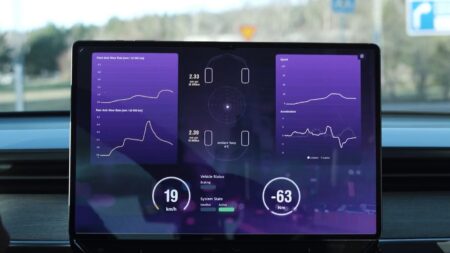Modern cars feature several vehicle dynamics-related driver assistance systems, from lane departure warning to automatic emergency braking, which continuously send large amounts of data, processing more and more information that must be transmitted in real time and sorted according to priority. To make the process more efficient, Fraunhofer IPMS has developed real-time capable IP cores that meet the Ethernet time-sensitive networking (TSN) standard.
The LLEMAC-1G IP core design has achieved the highest ASIL-D ready security level according to ISO 26262 norm since January 2020. Focusing on preventing or controlling hardware failures, ISO 26262 specifies security requirements for electronic systems in the automotive sector. The implementation of pre-certified IP cores considerably simplifies the overall system approval process by providing relevant component documents such as Failure Mode, Effects and Diagnostic Analysis (FMEDA) or a safety manual, as well as additional tested security features.
By means of a 32-bit controller interface (8-bit and 16-bit, an AXI4 stream interface, as well as optional AMBA APB and AHB) and a fully synchronised description, TSN IP Cores can be flexibly implemented in individual control units or circuits (system-on-chip, FPGA).
Marcus Pietzsch, group leader at Fraunhofer IPMS explains, “Because more and more data is being simultaneously transmitted in modern vehicles, classic fieldbus systems such as CAN or LIN are reaching their limits. It is important to prioritise information transmitted within the vehicle: a person running out in front of a car demands instant reaction. Sensors that detect the surroundings of the vehicle must have absolute priority. TSN-IP cores make it possible to establish a common, highly precise time basis in the entire network. This forms the basis for deterministically transferring important data in real time, with guaranteed bandwidth and minimal latency: a milestone in the development of data interfaces.”





